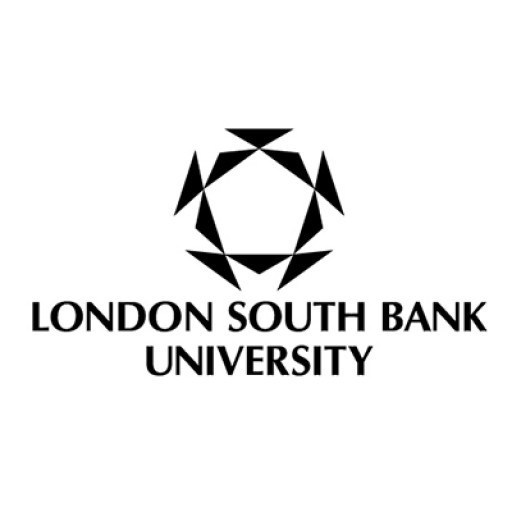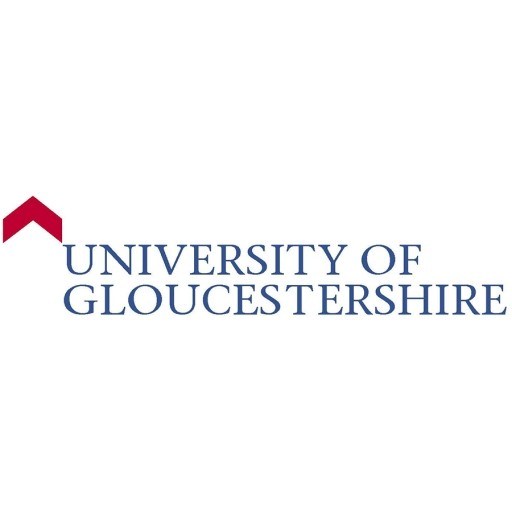Photos of university / #uniofexeter
International Management at the University of Exeter offers an in-depth exploration of global business practices, leadership strategies, and cross-cultural communication. This programme is designed for students who aspire to develop a comprehensive understanding of how organizations operate across different countries and markets. Through a combination of core modules and elective options, students will acquire essential management skills, including strategic decision-making, financial analysis, marketing, and human resource management, tailored to an international context.
The curriculum emphasizes the development of critical thinking, problem-solving, and effective communication, equipping graduates to succeed in diverse and dynamic business environments. Students will engage with real-world case studies, participate in group projects, and undertake work placements or internships, providing practical experience and insight into the global marketplace. The programme also offers opportunities for students to study abroad, enhancing their intercultural competence and global outlook.
Faculty members are experts in their fields, bringing extensive research and industry experience into teaching. The programme further benefits from the university’s strong links with international businesses and organizations, facilitating networking opportunities and career development. Graduates of the International Management programme are well-prepared to pursue careers in multinational corporations, consultancy firms, financial institutions, or to undertake further academic study. The University of Exeter’s vibrant campus community and supportive learning environment ensure students are well-equipped to thrive both academically and personally during their studies.
9 month programme structure
The intensive nine month variant of this programme is delivered over three terms from October to June and is University-based throughout this time. During the programme you will study modules totalling 180 credits. Please note that all options are available timetable permitting and may change. You will not undertake a dissertation.
Please note that programme structures may be subject to change.
Compulsory modules
Module
* Accounting for International Managers (BEAM045)
* Managing in a Multinational Context (BEMM160)
* Managing Operations (BEMM114)
* Marketing Strategy (BEMM148)
* People and Organisations (BEMM121)
* Principles of International Business (BEMM116)
* Strategy (BEMM119)
* Sustainable Enterprise Economy (BEMM161)
Total credits - 120
Optional modules
You will choose four options totalling 60 credits from a regularly updated selection. If you wish to pursue a specialism, three modules must be from that specialism. Recent modules are shown below:
Module/Credits 15
* Advanced Financial Accounting (BEAM024) (permission is needed to take this module)
* Advanced Management Accounting (BEAM025) (permission is needed to take this module)
* Advertising and Consumer Psychology (BEMM157)
* Banking and Financial Services (BEAM033)
* Brand Communication (BEMM113)
* Critical Readings in Tourism and Management (BEMM377)
* Corporate Governance, Reporting and Regulation (BEAM026)
* Entrepreneurship: New Venture Development (BEMM108)
* Event Management (BEMM380)
* Leadership and Global Challenges (CLSM158)
* Multinational Finance for Managers (BEMM130)
* Purchasing and Supply Chain Management (BEMM126)
* Service Operations and Marketing (BEMM147)
* Strategic Innovation Management (BEMM118)
* Sustainable Tourism Management (BEMM375)
* The Creative Organisation (BEMM162)
* Tourism and Marketing (BEMM374)
* Tourism, Policy and Strategy (BEMM373)
* The Management of Climate Change (BEMM165)
* Understanding Consumer Behaviour (BEMM120)
12 month programme structure
The 12 month variant of this programme is delivered over three terms and is University-based throughout this time. The taught components of the programme are delivered in the first two terms, leaving the third term and most of the summer to research, write and submit your dissertation. The programme in its entirety runs from October to September.
During the programme you will study modules, including a dissertation, totalling 180 credits. Please note that all options are available timetable permitting and may change.
Please note that programme structures may be subject to change.
Compulsory modules
Module
* Dissertation (BEMM251)
* Where a specialism pathway is being followed the dissertation topic must be relevant.
* Accounting for International Managers (BEAM045)
* Managing in a Multinational Context (BEMM160)
* Managing Operations (BEMM114)
* Marketing Strategy (BEMM148)
* People and Organisations (BEMM121)
* Principles of International Business (BEMM116)
* Strategy (BEMM119)
Total credits - 135
Optional modules
You will choose three options totalling 45 credits from a regularly updated selection. If you wish to pursue a specialism the three modules must all be from that specialism. Recent modules are shown below:
Module/ Credits 15
* Advanced Financial Accounting (BEAM024) (permission is needed to take this module)
* Advanced Management Accounting (BEAM025) (permission is needed to take this module)
* Advertising and Consumer Psychology (BEMM157)
* Banking and Financial Services (BEAM033)
* Brand Communication (BEMM113)
* Corporate Governance, Reporting and Regulation (BEAM026)
* Critical Readings in Tourism and Management (BEMM377)
* Entrepreneurship: New Venture Development (BEMM108)
* Event Management (BEMM380)
* Leadership and Global Challenges (CLSM158)
* Multinational Finance for Managers (BEMM130)
* Purchasing and Supply Chain Management (BEMM126)
* Service Operations and Marketing (BEMM147)
* Strategic Innovation Management (BEMM118)
* Sustainable Enterprise Economy (BEMM161)
* Sustainable Tourism Management (BEMM375)
* The Creative Organisation (BEMM162)
* Tourism and Marketing (BEMM374)
* Tourism, Policy and Strategy (BEMM373)
* Understanding Consumer Behaviour (BEMM120)
* The Management of Climate Change (BEMM165)
Learning and teaching
Our postgraduate taught programmes utilise a range of teaching methods including lectures, seminars and tutorials.
Lectures
The aim of lectures is to give you information on ideas that are central to the module and to help you in developing your understanding of complex ideas. Many of the teaching materials for lectures are made available to you electronically to accompany the notes you take during the lecture. Lectures are given by a range of staff members, including leading professors, who integrate their latest research findings into the teaching that you receive. Guest lecturers, including members of industry, also contribute to some modules.
Seminars and tutorials
Seminars and tutorials involve an in-depth exploration of the issues covered in lectures as well as giving you the opportunity to discuss various concepts and theories and receive feedback on your written assignments.
Assessment
Modules are assessed through a mixture of group work, coursework, project work and examinations; the weighting of each of these components will vary according to the academic requirements of the module. Examinations are normally held at the end of the module, in January and May/June.
Program requirements for the International Management degree at the University of Exeter typically include a combination of academic qualifications, language proficiency, and other criteria. Prospective students are generally expected to have achieved a certain level of academic achievement, such as A-levels or an equivalent qualification, with specific grades required for admission. International applicants often need to demonstrate proof of English language proficiency through standardized tests such as IELTS or TOEFL, with minimum score requirements that align with university standards; for IELTS, a typical minimum overall band score is 6.0 to 6.5 with no individual component below 5.5 or 6.0, depending on the program.
Additionally, applicants are usually required to submit a personal statement explaining their motivation for studying International Management and demonstrating their understanding of the subject area. References or letters of recommendation from teachers or other academic authorities are often requested to support the application. In some cases, relevant work experience or extracurricular activities related to management, leadership, or international affairs can strengthen an applicant’s application, though they are not always mandatory.
For mature students or applicants without traditional qualifications, the university may consider alternative assessments such as work experience, prior learning, or interviews. The program may also have specific entry requirements for applicants from international educational systems, which might include equivalency examinations or assessments.
Students are advised to check the detailed entry requirements on the university’s admissions webpage for the latest and specific thresholds. The program emphasizes interdisciplinary study, often requiring students to undertake modules in areas such as finance, marketing, organizational behavior, and international business strategies, and as such, applicants should be prepared for a rigorous academic workload. There are also prerequisites for certain modules in terms of prior knowledge or skills, but the university generally provides introductory courses for students new to certain subjects. Overall, the program aims to select motivated and academically capable students with a strong interest in global management issues, intercultural understanding, and strategic decision-making.
The University of Exeter offers a range of funding options and financial support schemes for students enrolled in the International Management program. Tuition fees for UK students are typically around £9,250 per year, while international students may pay between £18,000 and £22,000 annually, depending on the specific course and campus location. Prospective students are encouraged to explore scholarships, bursaries, and grants available through the university’s funding portal. The university provides several merit-based scholarships for outstanding applicants, which can significantly offset tuition costs. Additionally, students may be eligible for government student loans, such as the Student Loans Company (SLC) in the UK, covering tuition fees and maintenance costs. International students are advised to investigate funding options available in their home countries, including government bursaries, international scholarships, and sponsorship programs. The university also recommends external funding sources, such as private foundations and organizations that support international students studying abroad. For students requiring financial assistance during their studies, part-time work opportunities within the university and the local area are available, subject to visa regulations for international students. Exeter’s careers service provides guidance on securing paid internships and part-time roles to help manage living expenses. The university emphasizes the importance of early application for financial aid and advises students to complete the relevant financial aid application forms well in advance of the start date. Students enrolled in the program are also encouraged to participate in fundraising activities or apply for external scholarships offered by international organizations, professional bodies, and industry partners. The university maintains transparent communication channels and offers personalized financial advice to help students plan their budgets effectively. Overall, Exeter is committed to making international management education accessible through a comprehensive range of financial support mechanisms to reduce the economic barriers facing students and support their academic success.
The International Management program at the University of Exeter is designed to prepare students for a dynamic global business environment by developing their understanding of management principles within international contexts. The course offers a comprehensive curriculum that covers key areas such as strategic management, international marketing, global financial management, and cross-cultural communication. Students will gain practical skills through case studies, projects, and internships, enabling them to apply theoretical knowledge to real-world scenarios. The program emphasizes critical thinking, leadership, and analytical skills, equipping graduates to operate effectively in diverse international markets. Throughout their studies, students will have access to state-of-the-art facilities, experienced faculty, and networking opportunities with industry professionals. The program also includes opportunities for students to study abroad, enhancing their intercultural competence and global outlook. Graduates of the International Management course at Exeter often pursue careers in multinational corporations, consulting firms, international NGOs, and governmental agencies. The program is offered full-time over three years, with a potential for a placement year to gain valuable work experience. Admission requirements typically include strong academic qualifications, relevant work experience (if applicable), and proficiency in English. The university’s strong research output and collaborations with global businesses support the program's emphasis on current trends and practices in international management.









